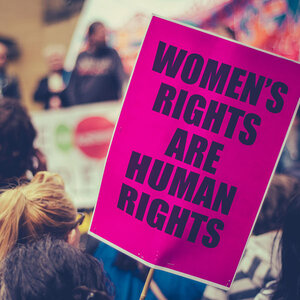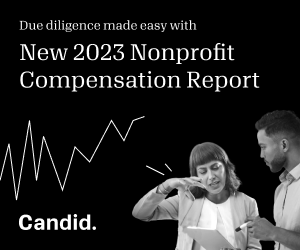Investing in state courts is a critical step to advancing rights and equity

Last summer, the U.S. Supreme Court’s decision in Dobbs vs. Jackson Women’s Health ended the constitutionally protected right to abortion. The majority of Americans opposed this ruling and mobilized through protest and at the ballot box, securing critical state-level protections for abortion access. Despite these successes, soon a federal judge in Texas—selected by plaintiffs for his record opposing abortion rights—will have the sole authority to block access to medication abortion nationwide.
According to a poll conducted in March 2022, most Americans across the political spectrum believe that abortion should be legal in most or all cases. Funders motivated to advance equity through reproductive rights, voting rights, LGTBQ+ rights, and criminal justice reform have historically focused their giving at the national level. While those supports remain essential, much of the fight for abortion access has shifted to the states, where ballot measures and state court rulings are affecting millions of people.
Judicial elections determine how states can interpret their own laws and constitutions on major issues such as abortion rights, voting rights, protection against sex discrimination, and equal pay. While local advocates have rushed to defend these rights, many lack the resources to address the unprecedented challenges they face today. In this context, for funders seeking to advance and protect such rights, strengthening state judiciaries by investing in long-term support for advocates and local organizations is the most effective path.
Funders seeking to limit those rights have long known the value of state courts, focusing on building a pipeline of judges who would restrict such rights and prioritizing strategic investments to bolster their power at the state level. If reproductive equity funders are serious about strengthening abortion access and other rights, they must not just match but vastly exceed, those efforts.
Nowhere has this become clearer than Wisconsin and Pennsylvania, two political battlegrounds which will soon hold elections for open state judiciary seats–with far-reaching implications. Wisconsin voters will cast ballots for a critical seat on the state supreme court, determining control of the court and deciding the trajectory of abortion and other rights in the state. Abortion care is currently banned in Wisconsin, where a 174-year-old abortion law has gone back into effect with devastating results. And in November, voters will elect multiple judges in Pennsylvania.
Even with limited resources, advocates in these states have made enormous strides in defending abortion access and other rights. Innovative partnerships, nonpartisan voter education campaigns, and polling and research have laid the groundwork for lasting change, often uniting advocates from historically-siloed movements for gender, racial, and LGBTQ+ equality. A cross-movement approach has allowed these advocates to maximize available resources and share expertise and experience.
In Wisconsin, for example, A Better Wisconsin Together Institute is driving essential voter polling and research, gathering insights into Wisconsinites’ views on the state supreme court and the upcoming election to inform advocacy efforts. Their survey found abortion to be the number-one mobilizing issue among core voters and among the top issues for swing voters and many voters of color. These insights also revealed how powerful concerns around the 1849 abortion ban law will be in the judicial election. And in Pennsylvania, organizations like Keystone Research Center began preparing for judicial elections as early as 2021 through a highly successful voter education campaign. Keystone led a bipartisan table of more than 125 groups across the political spectrum to successfully defeat an effort to elect judges by district rather than in statewide elections, which would have opened courts up to partisan power grabs and harmful legislative influence.
Attacks on bodily autonomy, voting rights, LGTBQ+ rights, and criminal justice reform are each part of a broader strategy to undermine our multiracial democracy. Building strong state courts and supporting Black, brown, and other judges who reflect the diverse communities they serve is the first step to turning the tide on these attacks, and enshrining reproductive rights as a fundamentally interconnected form of equity.
Too often, funders and donors have invested at the state level only to respond to immediate threats to equity through urgent, short-term interventions. We cannot afford to set those efforts aside—but meeting the moment means pairing interventions with long-term investments. It means listening to and supporting state organizations that are so often under-resourced. From general civic education, and support for capacity building, to multiyear grants that bring stability to the movement and investments in a pipeline of impartial and diverse jurists at both the state and local levels, steady investments can expand and advance rights, turning “lost cause” states into battlegrounds–and eventually into states where all people are safe and protected.
If philanthropists can support this vision with patience and consistency, we can help improve lives across the country not just for the next few years, but for generations to come.
Cristina Uribe is director of advocacy and judicial strategies at the Collaborative for Gender + Reproductive Equity.





